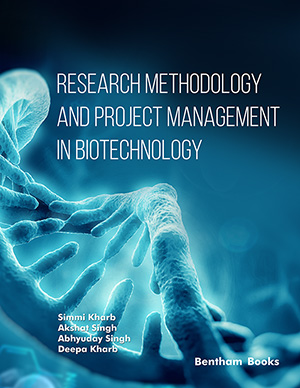
Abstract
Thalidomide (Thal) has antiangiogenic and immunomodulatory activity. Clinical research provided clear evidence that Thal is one of the most active drugs for the treatment of multiple myeloma leading to decrease of monoclonal protein of at least 50% in 30% of patients with relapsed or refractory multiple myeloma. Randomized trials based on a large body of evidence from phase II trials determined that Thal significantly increases total response rate in combination regimens (dexamethasone [Dex] and or chemotherapy) for relapsed as well as newly diagnosed patients. Thal also decreases time to response in combination therapy approaches. Thal has therefore been recognized by leading organizations as part of the treatment concept for patients with relapsed or refractory disease. Strict guidelines apply for the treatment and monitoring of Thal therapy to prevent the teratogenic effects of Thal and to monitor and prevent other potential adverse events as neuropathy and thrombosis. Additional randomized studies will now define the status of Thal for newly diagnosed patients and will be the basis for the approval in Europe and other countries world wide.
Keywords: Angiogenesis, Immunomodulatory, TNF-alpha, Refractory Myeloma, Corticosteroids
Current Pharmaceutical Biotechnology
Title: Thalidomide in Multiple Myeloma
Volume: 7 Issue: 6
Author(s): T. M. Moehler, J. Hillengass, A. Glasmacher and H. Goldschmidt
Affiliation:
Keywords: Angiogenesis, Immunomodulatory, TNF-alpha, Refractory Myeloma, Corticosteroids
Abstract: Thalidomide (Thal) has antiangiogenic and immunomodulatory activity. Clinical research provided clear evidence that Thal is one of the most active drugs for the treatment of multiple myeloma leading to decrease of monoclonal protein of at least 50% in 30% of patients with relapsed or refractory multiple myeloma. Randomized trials based on a large body of evidence from phase II trials determined that Thal significantly increases total response rate in combination regimens (dexamethasone [Dex] and or chemotherapy) for relapsed as well as newly diagnosed patients. Thal also decreases time to response in combination therapy approaches. Thal has therefore been recognized by leading organizations as part of the treatment concept for patients with relapsed or refractory disease. Strict guidelines apply for the treatment and monitoring of Thal therapy to prevent the teratogenic effects of Thal and to monitor and prevent other potential adverse events as neuropathy and thrombosis. Additional randomized studies will now define the status of Thal for newly diagnosed patients and will be the basis for the approval in Europe and other countries world wide.
Export Options
About this article
Cite this article as:
Moehler M. T., Hillengass J., Glasmacher A. and Goldschmidt H., Thalidomide in Multiple Myeloma, Current Pharmaceutical Biotechnology 2006; 7 (6) . https://dx.doi.org/10.2174/138920106779116919
| DOI https://dx.doi.org/10.2174/138920106779116919 |
Print ISSN 1389-2010 |
| Publisher Name Bentham Science Publisher |
Online ISSN 1873-4316 |
Call for Papers in Thematic Issues
Machine Learning and Artificial Intelligence for Medical Data Analysis and Human Information Analysis in Healthcare
The intersection of machine learning (ML) and artificial intelligence (AI) with the pharmaceutical industry is revolutionizing traditional paradigms in drug discovery and development. These technologies have introduced innovative approaches to analyzing complex datasets and predicting chemical properties, leading to more efficient identification and optimization of drug candidates. By employing sophisticated ...read more
 43
43
- Author Guidelines
- Graphical Abstracts
- Fabricating and Stating False Information
- Research Misconduct
- Post Publication Discussions and Corrections
- Publishing Ethics and Rectitude
- Increase Visibility of Your Article
- Archiving Policies
- Peer Review Workflow
- Order Your Article Before Print
- Promote Your Article
- Manuscript Transfer Facility
- Editorial Policies
- Allegations from Whistleblowers
Related Articles
-
Nitric Oxide Synthase (NOS) as Therapeutic Target for Asthma and Chronic Obstructive Pulmonary Disease
Current Drug Targets Novel Strategies in the Treatment of Pulmonary Arterial Hypertension
Current Drug Targets The Guanylyl Cyclase Inhibition by MB as Vasoplegic Circulatory Shock Therapeutical Target
Current Drug Targets Advances in Biologic Agents for the Treatment of Rheumatoid Arthritis
Anti-Inflammatory & Anti-Allergy Agents in Medicinal Chemistry Regulatory Mechanisms of Vanillic Acid in Cardiovascular Diseases: A Review
Current Medicinal Chemistry Acute Human Toxicity of Macrocyclic Lactones
Current Pharmaceutical Biotechnology Dark Chocolate and Blood Pressure: A Novel Study from Jordan
Current Drug Delivery N-acetyl-seryl-aspartyl-lysyl-proline (Ac-SDKP): Potential target molecule in research of heart, kidney and brain
Current Pharmaceutical Design Novel Drugs for Chronic Lymphoid Leukemias: Mechanism of Action and Therapeutic Activity
Current Medicinal Chemistry Editorial: Limited Utility of the Handgrip Test for the Diagnosis of Diabetic Cardiovascular Autonomic Neuropathy: “There’s Time Enough, But None to Spare”
Current Vascular Pharmacology Isolation and Boactivities of Furfuran Type Lignan Compounds from Edible Plants
Recent Patents on Food, Nutrition & Agriculture Increased Risk of Falls, Fall-related Injuries and Fractures in People with Type 1 and Type 2 Diabetes - A Nationwide Cohort Study
Current Drug Safety The Emerging Role of Sodium-glucose Cotransporter 2 Inhibitors in Heart Failure
Current Pharmaceutical Design Modification of Decoy Oligodeoxynucleotides to Achieve the Stability and Therapeutic Efficacy
Current Topics in Medicinal Chemistry Treating Depression in Coronary Artery Disease and Chronic Heart Failure: What’s new in using Selective Serotonin Re-Uptake Inhibitors?
Cardiovascular & Hematological Agents in Medicinal Chemistry Cerebral Vasoreactivity in a Fabry Disease Patient
Current Medical Imaging Inducible Nitric Oxide Synthase - Time for Reappraisal
Current Drug Targets - Inflammation & Allergy Management of Anaphylaxis in Pediatric Population
Current Pharmaceutical Design The Immunosuppressive Role of Adenosine A2A Receptors in Ischemia Reperfusion Injury and Islet Transplantation
Current Diabetes Reviews Molecular and Cellular Mechanisms in the Pathophysiology of Severe Head Injury
Current Pharmaceutical Design
























